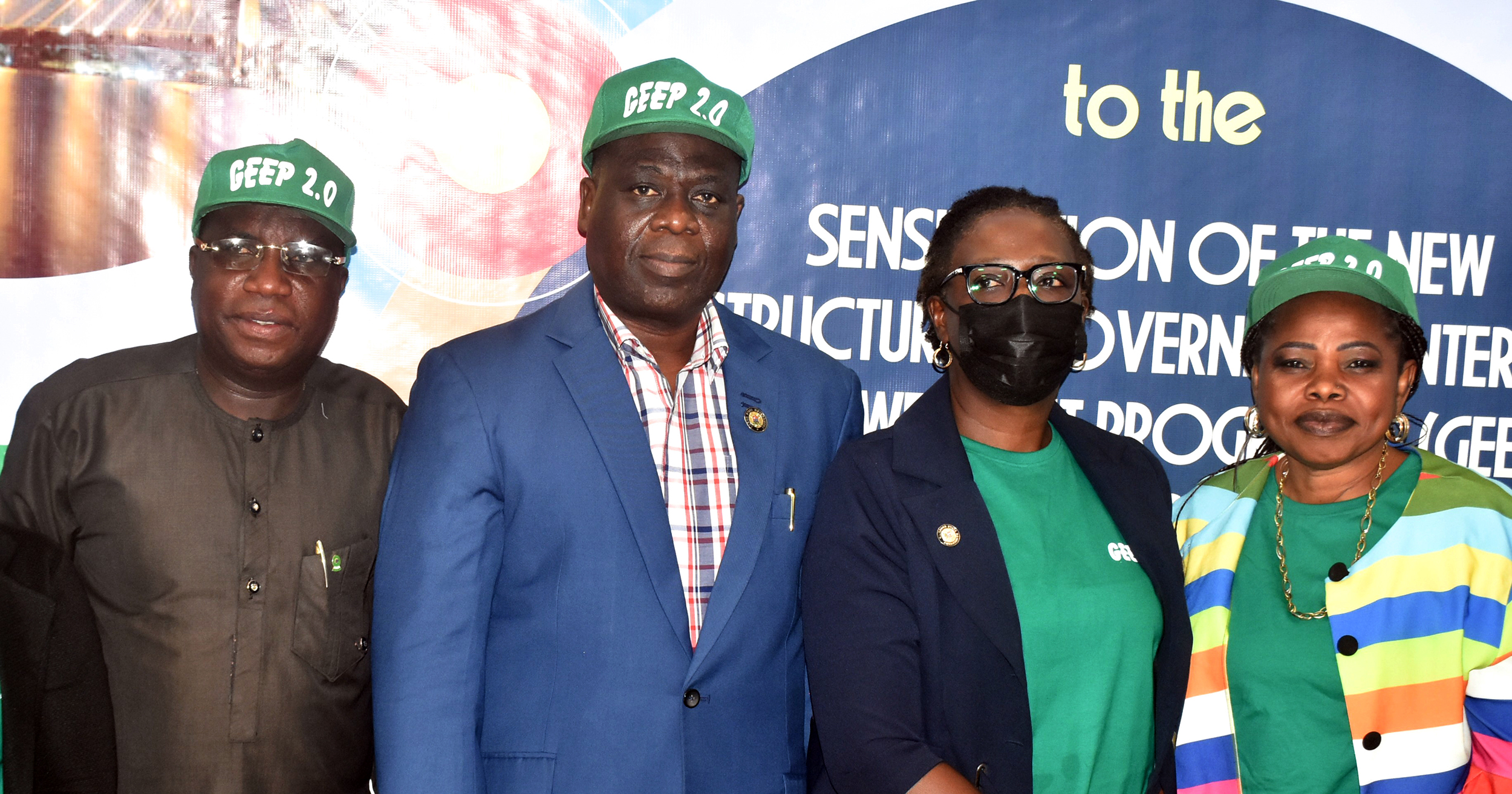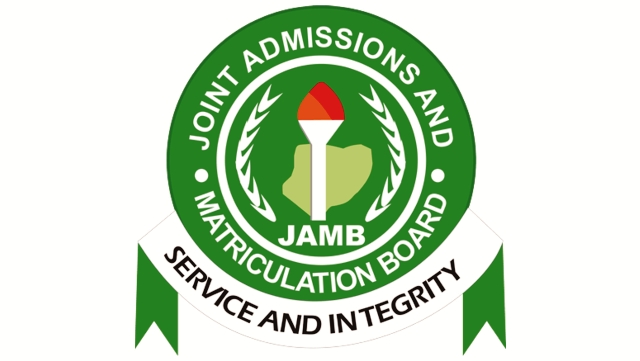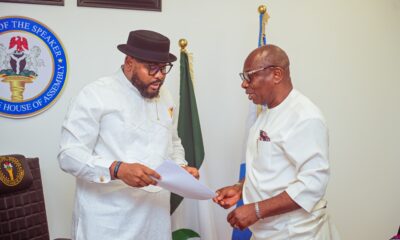News
Rivers Tops 2021 Fiscal Performance Ranking

Rivers State has grossed the top position in the 2021 Fiscal Performance Ranking, beating 35 others states and the Federal Capital Territory (FCT) in the State of States 2021 BudgIT Report.
A close look at the National Fiscal Outlook shows that Rivers State once again topped the overall 2021 Fiscal Performance Ranking despite COVID-19 induced fiscal shocks to its IGR, indicating that the fiscal fundamentals of the state, compared to other states, are more prudently managed.
Two states made it, as new entrants, to the Top 5 category in the overall 2021 ranking – Ebonyi State emerged in second position, up from sixth position in 2020, and Kebbi State emerged in fifth position, up from 11th position in 2020.
The entrance of Ebonyi and Kebbi states into the Top 5 category was driven largely by growth in both states’ IGR as recorded by the National Bureau of Statistics (NBS).
In the 2021 Performance Ranking, two states dropped out of the Top 5 in overall ranking; Ogun State (now 19th) and Kano State (now 22nd), due to a sharp decline in their IGR in 2020.
A closer look at the report shows that the Top 5 States are Rivers (1), Ebonyi (2), Anambra (3), Lagos (4) and Kebbi (5), while the Bottom 5 are Bayelsa (36), Taraba (35), Benue (34), Katsina (33) and Adamawa (32).
The rest of the states are Kaduna (6), Gombe (7), Cross River (8), Edo (9), Kwara (10), Zamfara (11), Sokoto (12), Osun (13), Enugu (14), Abia (15), Nasarawa (16), Borno (17)and Plateau (18).
Others include Ogun (19), Imo ranked 20, Yobe in 21st position, Kano (22), Oyo (23), Akwa Ibom (24), Jigawa (25), Niger (26), Bauchi (27), Kogi (28), Ekiti (29), Ondo (30), and an oil and gas-producing state – Delta- at 31st position.
In fact, three oil and gas producing states – Bayelsa, Delta and Ondo – are in the Bottom 7 of the 2021 Fiscal Performance Ranking, showing shamefully frivolous management of scarce resources accruing to the states in the year under review.
In the States’ Comparative Viability Index, only three states in the country can meet their operating expenses obligations with a combination of their IGR and Value Added TAX (VAT) as measured in BudgIT’s States’ Performance Index Ranking: Lagos, Rivers and Anambra.
The States Performance Index ranked Lagos tops with a score of 0.70, Rivers second with a score of 0.81, Anambra third with a score of 0.99, Ebonyi fourth with a score of 1.08, and Cross River fifth with 1.21 score.
Kaduna scored 1.22 to emerge sixth, Kebbi scored 1.26 to emerge seventh, Osun scored 1.36 to rank ninth, Zamfara scored 1.45 to rank 10th, Plateau scored 1.48 to emerge 11th, Gombe scored 1.49 to rank 12th while Edo scored 1.54 to emerge 13th in the ranking.
Kwara ranked 14th with a scored 1.55, Enugu ranked 15th with a score of 1.66, Oyo ranked 16th with a score of 1.66, Sokoto ranked 17th with a score of 1.72, Imo ranked 18th with a score 1.76, Abia 19th on 1.78 score, Kano 20th on 1.82 score, Borno 21th on 1.99 score, Nasarawa 22nd, on 1.99 score, and Kogi 23rd on 2.09 score.
With a score of 2.18, Bauchi ranked 24th, Yobe scored 2.26 to rank 25th, Niger scored 2.30 to emerge 26th, Adamawa scored 2.33 to rank 27th, Ondo scored 2.33 to rank 28th, Akwa Ibom scored 2.34 to rank 29th, Katsina scored 2.41 to emerge 30th while Ekiti scored 2.47 to rank 31st.
At the Bottom 5 of the States Performance Index, are Jigawa which scored 2.47 to rank 32nd, Delta 2.51 score at 33rd, Benue 2.64 score to rank 34th, Taraba scored 3.23 to emerge 35th, and Bayelsa scored 5.32 to gross 36th.
The BudgIT report urged that states at the bottom of the Index A ranking need to do more to rapidly consolidate on any ongoing strategies to improve their IGR and by extension, their viability as federating entities.
In its ranking of States Performance on Index B which measured availability of public revenue to invest in capital infrastructure after fulfilling repayment obligations to lenders and their government’s operation expenses, the BudgIT report ranked Ebonyi tops with a score of 0.47, Rivers second with a score of 0.48, Kebbi third with a score 0.51, Anambra fourth with a score of 0.53, and Kaduna fifth with a score of 0.57.
States with less revenue left to invest in capital infrastructure for citizens, and also face greater risk of borrowing are Zamfara which scored 0.96 and ranked 33rd, Oyo at 0.98 and ranked 34th, Benue which scored 1.00 and ranked 35th, and Taraba, ranking 36th with a score of 1.19.
However, BudgIT cautioned that “all Nigerian states still need to work hard to build economic prosperity and create more jobs in their states to ensure that there is more money in circulation and economic activities that can be taxed to improve their IGR”.
On the Subnational Debt Outlook, the BudgIT report said that, “Cumulatively, the 36 states total debt burden increased by N472.63billion or 8.78percent from N5.39trillion in 2019 to N5.86trillion in 2020. This increase in total subnational debt was driven largely by exchange rate volatility which saw the value of the Naira jump from N305.9/$1 in 2019 to N380/$1 as at December 31, 2020.”
Its report on the Spending Priorities shows that “based on each state’s 2020 revenue, five states prioritized investment in infrastructure by spending more on capital expenditure than operating expenses. The states are Ebonyi, Rivers, Anambra and Cross River states in the South and Kaduna State in the North.”
The BudgIT report also gave a detailed breakdown of Rivers State’s growth indices over the five-year IGR earning trend from 2016 through 2020, with N85.29billion in 2016, N89.48billion in 2017, N112.78billion in 2018, N140.40billion in 2019 and N117.19billion in 2020.
It showed that gross FAAC revenues stood at NN104.93billion in 2016, N138.15billion in 2017, N172.87billion in 2018, N169.13billion in 2019 and N149.75billion in 2020.
The state’s Year-On-Year Growth rate 2019 through 2020 shows that IGR declined by -16.53percent, Gross FAAC was -11.46percent, while Capital Expenditure was -24.14percent.
Also, the Structure of State of States Recurrent Revenue for 2020 reported N117.19billion in IGR value, representing 43.90percent, against N149.75billion Gross FAAC value, representing 56.10percent.
On the 2020 Spending Priority Index, Rivers State reported a Capital Expenditure of N168.36billion, or 59.70percent against N113.65billion Operating Expenses or 40.30percent.
The BudgIT report also gave an analysis of Rivers State’s Per Capita for 2020, which stood at N14,005 IGR Per Capita; N20,120 Capital Expenditure Per Capita; and N36,291 Total Debt Per Capita.
BudgIT report indicates that “Rivers State’s IGR was still the second highest in the country and accounted for 9.65percent of the total N1.21trillion in IGR generated by all 36 states; it was surpassed only by Lagos State, with an IGR of N418.98billion in 2020″.
By: Nelson Chukwudi
News
JAMB Rules Out Extension, Says UTME Registration Ends March 8

The Joint Admissions and Matriculation Board (JAMB) has reiterated that there will be no extension of the 2025 Unified Tertiary Matriculation Examination (UTME) registration beyond March 8, 2025.
JAMB spokesperson, Dr Fabian Benjamin, made this known in a press release issued in Abuja, yesterday.
According to Benjamin, the registration period, which commenced on 3rd of February, will close on March 8, 2025, as previously announced.
“This deadline has been clearly communicated in all advertisements and the official calendar for the 2025 UTME exercise,” he said.
“We wish to inform all prospective candidates that there will be no extension of the registration period. This notice is particularly important given the recent decline in the number of candidates registering for the examination.
“We urge all individuals who wish to participate to register promptly and avoid waiting until the last minute,” he added.
Benjamin disclosed that over 1.5 million candidates have already registered, which aligns with the board’s projections for the 2025 examination cycle.
“It is essential to note that the Board’s calendar is fixed, with several other scheduled activities after registration, including the examination, results processing, and admissions exercise.
“These timelines are coordinated with other agencies whose operations depend on the completion of our processes. Therefore, extending the registration period would disrupt not only JAMB’s plans but also those of our partners,” he explained.
Benjamin urged candidates to complete their registration as soon as possible and adhere to the set deadline for the 2025 UTME.
News
Nigeria Seeks EU Approval To Import Non-Hazardous Waste
The European Commission has received requests from Nigeria and 23 other non-members of the Organisation for Economic Cooperation and Development countries seeking inclusion in the list of nations eligible to import non-hazardous waste from the European Union.
Non-hazardous waste, which accounts for 95.6 per cent of solid waste produced in Europe, includes municipal waste such as packaging, clothing, bottles, and plastics, as well as demolition materials like concrete, bricks, stones, and food waste.
In a statement issued on Monday, the request was made in line with the new Waste Shipments Regulation, introduced as part of the EU’s Green Deal and Circular Economy Action Plan.
The regulation aims to establish stricter rules for the shipment of waste, including imports and exports between the EU and non-OECD countries. One key measure is the full ban on the export of plastic waste from the EU by November 2026.
Countries applying for eligibility to import non-hazardous waste must demonstrate their ability to manage these materials in an environmentally sound manner, with conditions that meet or exceed those of the EU.
The European Commission requires detailed information from the applicants to assess their readiness for this responsibility.
The countries that have submitted requests include Bangladesh, Bosnia and Herzegovina, Egypt, El Salvador, India, Indonesia, Kazakhstan, Malaysia, Moldova, Monaco, Morocco, North Macedonia, Pakistan, the Philippines, Saudi Arabia, Serbia, Singapore, Taiwan, Thailand, Togo, Tunisia, Ukraine, and Vietnam, alongside Nigeria.
“By that date, 24 requests were received for inclusion on the list of countries eligible to import non-hazardous waste from the EU after 21 May 2027 from Bangladesh, Bosnia and Herzegovina, Egypt, El Salvador, India, Indonesia, Kazakhstan, Malaysia, Moldova, Monaco, Morocco, Nigeria, North-Macedonia, Pakistan, Philippines, Saudi Arabia, Serbia, Singapore, Taiwan1, Thailand, Togo, Tunisia, Ukraine and Vietnam,” the EC said.
“The Commission will evaluate these applications and prepare a list of approved countries by November 2026. From May 2027 onwards, any country not included in this list will be prohibited from importing waste from the EU.
“However, countries that missed the February 2025 deadline can still submit requests, although there is no guarantee their assessment will be finalised before the first list is adopted.
“The first list of countries authorised to receive waste from the EU will be established by 21 November 2026. Exports of waste to non-OECD countries that are not included in the list will be prohibited from 21 May 2027. This list will be updated regularly and at least every two years.
“Countries that have not submitted a request by 21 February 2025 can still send one to the Commission. These requests will still be considered, but there is no guarantee that their assessment will be finalised before establishing the first list of countries authorised to import waste from the EU. This first list is planned for adoption in November 2026,” the statement concluded.
News
Our Governance Gives Peace, Offers Rivers People Freedom – Fubara
Rivers State Governor, Sir Siminalayi Fubara, has said that Rivers people are enjoying an era of peace and freedom to undertake their endeavours without molestation or anxiety to trigger hypertension.
The Governor also said there is an increased level of openness to governance that makes his administration well-disposed to suggestions that help in making amends where necessary because it is a democracy.
Governor Fubara spoke during a courtesy visit by a delegation of Anglican Archbishops and their wives led by the Primate, Archbishop Metropolitan of All Nigeria, Church of Nigeria Anglican Communion, Most Rev Henry Chukwudum Ndukuba, at Government House in Port Harcourt, recently.
The Governor stated that his administration understands that God is supreme, towers above every other thing, and nothing happens without His approval, and thanked them for standing with his administration in prayers, which has continued to provide strength to keep the course of governance focused.
He added, “It is not the noise that we are making, not the protests, but it is those quiet prayers, and fasting that you are doing for us. And you are seeing the result of it, with what we are doing in the state.
“The kind of governance we are giving. Not governance of hypertension but governance of peace. Governance that gives people freedom to operate, governance that listens and admits. Where we are faulting, we say yes, we are faulting, and we make amends. It is only your prayers that are giving us the direction and wisdom.”
Governor Fubara assured that seeing such divine help, his administration will not deviate from the fear of God in order not to lead the government into destruction.
The Governor recalled how the leadership of the Anglican Church made several efforts to mediate in the political crisis in the State because they had considered that since the dramatis personae were all faithful, it will be much easier to broker peace.
Governor Fubara, who regretted that the efforts of the top echelon of clergy were rebuffed, said maybe God designed it to be so that he could enjoy the current level of freedom to offer purposeful governance to the State.
Speaking on their chosen theme, “The Bond of Peace: The Call of the Life and the Ministry of the Church”, Governor Fubara said peace remains the most valuable virtue to strive for because even Jesus Christ knew its importance, and bequeathed it to His disciplines at the point of His ascension to Heaven.
He stressed, “It is the only thing that is needed not just for our State, but for this country going by what we are seeing, read in the papers, experience in the market, encounter in the road, and how we even manage our families to be parents. What we really need is peace so that everything will become normal.”
In his address, Primate, Archbishop Metropolitan of All Nigeria, Church of Nigeria Anglican Communion, Most Reverend Henry Chukwudum Ndukuba, said Archbishops are in Rivers State for the Standing Committee Meeting of the Church of Nigeria Anglican Communion, which holds twice every year; in February and in September.
Most Rev. Ndukuba stated that for this Standing Committee, they chose the theme, “The Bond of Peace: The Call of the Life and the Ministry of the Church”, taken from Ephesians 4 verse 3, adding that they will make crucial decisions as they depend on God to build people of faith among themselves.
He said: “The Church of Nigeria Anglican Communion has about 170 Bishops and over 165 Dioceses with membership of over 20million Nigerians.
“Our ministry covers both within and outside of Nigeria, having missions across the world, including United States of America and Canada, and also UK and European missions and Golf States. We have missionaries across Africa.”
Most Rev. Ndukuba expressed gratitude to God for divinely ordaining Governor Fubara to govern Rivers State and equipping him to lead with the fear of God and steadied governance despite the political upheavals.
He said, “Leadership is a sacred trust from God Almighty, and as God’s people, the Scripture enjoins us to pray for those in authority. We are here to assure you of our prayers and to appreciate what God is doing through you.
“In spite of the challenges that you are facing, we thank God that you have kept focused, and you are executing the things that you need to do as the Executive Governor of this State.
“We want to thank you for creating enabling environment to enable businesses thrive, adding that different religions will have the freedom to practice their faith, both Christianity and the other religions.”
Most Rev. Ndukuba stated further: “But, particularly, we appreciate your support for the Christian Church, especially for the Anglican Church. And we thank God that you are a bonafide member of this church. We appreciate what you have allowed God to use you to do.”
Meanwhile, the Church of Nigeria Anglican Communion Archbishops’ Standing Committee Meeting (SCM), is slated to be declared open on Wednesday (today) at the St. Cyprain’s Anglican Church, in Old Port Harcourt Township by Governor Siminalayi Fubara.
Highlights of the visit were prayers by the Archbishops for the Governor and his Government, the State and the Nation; as well as presentation of suovenir gifts to the visitors.
-

 News8 mins ago
News8 mins agoJAMB Rules Out Extension, Says UTME Registration Ends March 8
-

 Featured4 mins ago
Featured4 mins agoRivers Reps Back Fubara, Say Pro-Wike Lawmakers Have Lost Seats
-
News21 mins ago
Seinye Lulu-Briggs Named Year 2024 African Philantropist
-
News20 mins ago
Recognise Abiola As Former President, Orji Kalu Tells Tinubu
-
News19 mins ago
FG Unveils AI Training For 6,000 Teachers
-
News18 mins ago
Let’s Partner To Curb Crude Oil Theft, Pipeline Vandalism, Fubara Tells New GOC
-
News14 mins ago
Our Governance Gives Peace, Offers Rivers People Freedom – Fubara
-
News13 mins ago
Nigeria Seeks EU Approval To Import Non-Hazardous Waste

